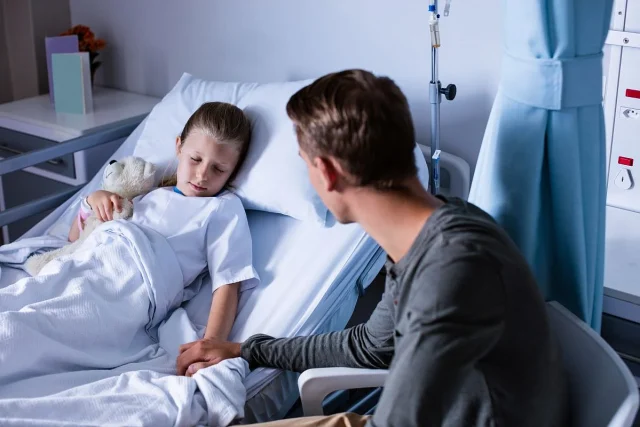Machine learning model can predict postoperative complications in children up to three days before a formal diagnosis
By Elana Gotkine HealthDay Reporter
MONDAY, July 14, 2025 (HealthDay News) — Wearable-derived biorhythms can predict postoperative complications in children undergoing appendectomy, according to a study published online July 9 in Scientific Advances.
Rui Hua, Ph.D., from Shirley Ryan AbilityLab in Chicago, and colleagues examined biorhythm-based metrics (circadian and ultradian rhythms, derived from the daily activity and heart rate patterns recorded by a consumer wearable) and their relationship with postoperative recovery in children with and without postoperative complications. Wearables were given to 103 children for 21 days immediately after appendectomy; per-minute data were used to extract biorhythm metrics.
The researchers found that a machine-learned model predicted postoperative complications up to three days before a formal diagnosis using these metrics, with sensitivity of 91 percent and specificity of 74 percent.
“A machine learning algorithm using wearable-derived biorhythms related to activity and heart rate predicted most complications up to three days before diagnosis, likely due to the delayed recovery of typical biorhythms in children who experienced complications after surgery,” the authors write. “More use cases should be investigated in future studies to evaluate the predictive value of biorhythms for other pediatric monitoring applications or even within different types of appendicitis.”
Copyright © 2025 HealthDay. All rights reserved.



















